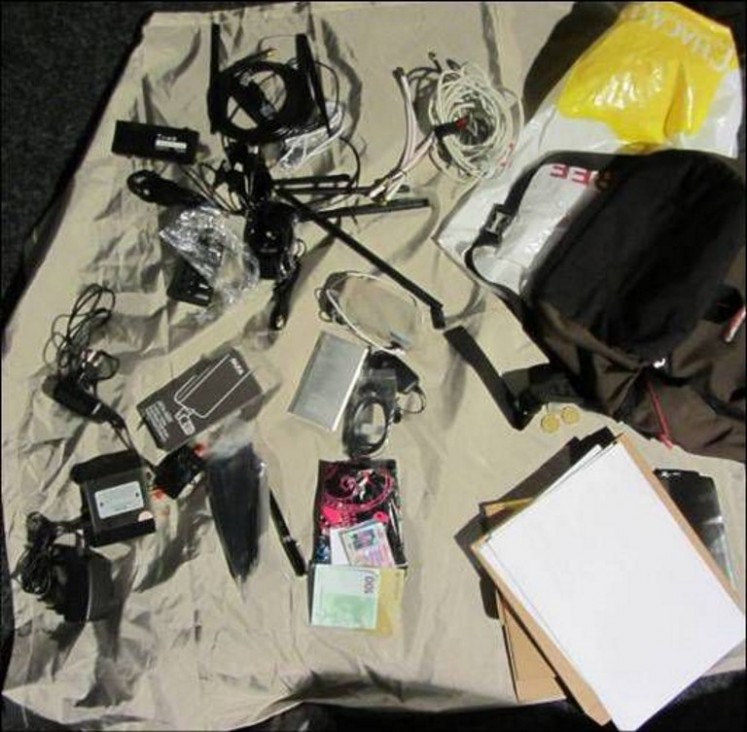Popular Reads
Top Results
Can't find what you're looking for?
View all search resultsPopular Reads
Top Results
Can't find what you're looking for?
View all search resultsSchool meals for better nutrition in Indonesia
To reap the benefits of a demographic bonus, the transformation of food systems needs to include the provision of healthy, nutritious and safe meals to all children.
Change text size
Gift Premium Articles
to Anyone
F
rom July 24-26, world leaders are gathering in Rome to take stock of, accelerate and deepen the transformative power of the food system to realize all 17 Sustainable Development Goals (SDGs) under the 2023 United Nations Food Systems Summit +2: Stocktaking Moment.
One of the concrete initiatives which will be explored and enhanced is the school meals program to improve food quality and fight malnourishment.
As children represent the future, this topic is not only important for Indonesia, but also for all countries across the globe.
Indonesia’s commitment and contribution to this process is without question, which is why it is important to share the country’s perspectives and experiences on this issue, especially regarding three focus areas, as follows.
First, nutrition.
Indonesia will continue to reap the benefits of the “demographic bonus” over the next two decades, in which the youth and working-age groups make up most of the population.
In this context, the transformation of food systems needs to include the provision of healthy, nutritious and safe meals to all children.
Balanced nutrition starting at a young age is crucial, as it will affect the growth and development process, knowledge and habits, as well as determine the future quality of life.
School-aged children who are malnourished may have trouble focusing and become absent more frequently because they are more prone to illness.
Second, behavior.
According to an analysis of the desirable dietary pattern, Indonesians consume few fruits, vegetables, tubers and nuts, but consume large amounts of rice, fats, and oils. This contributes to malnutrition and undernutrition, leading to obesity.
Therefore, educating the young members of the population on better eating habits plays an important role in changing the consumption behavior of Indonesians.
We have initiated a program called the Movement for Education and Providing Nutritious Food to Students to educate elementary school students about healthy eating and dietary diversification.
We also have a national campaign called Beragam, Bergizi Seimbang dan Aman (Diverse, Nutritionally Balanced and Safe Food, or B2SA) with the goal of changing the food consumption behaviors of Indonesians. B2SA was a mandate of Law No. 18/2012 on Food, which stipulates that the central and local governments are responsible for the realization of the diversification of food.
These programs are in line with President Joko “Jokowi” Widodo’s bid to alleviate stunting in children in the country. The President hopes to lower the prevalence of stunting to 14 percent in 2024.
Currently, Indonesia ranks 27th out of 153 countries worldwide in terms of stunting prevalence, the fifth highest in Asia and the highest among Group of 20 countries. Indonesia has reduced the rate from some, but various efforts are still needed to meet the target.
Third, collaboration.
Collaboration either at the international, national or subnational level should be redoubled. Rome-based agencies' collaboration at the national level to fight malnutrition should also be enhanced.
Providing a healthy diet to children is part and parcel of food systems transformation. Therefore, we will accelerate and leverage efforts to ensure a healthy diet for children, which will continue to be refined and adapted based on local conditions.
Finally, given the importance of children to the future, investment in a healthy diet plan and school meals constitutes a meaningful investment in the future.
***
The writer is head of the National Food Agency and alternate head of the Indonesian delegation to the United Nations Food Systems Summit +2 Stocktaking Moment on July 24-26 at FAO Headquarters.











